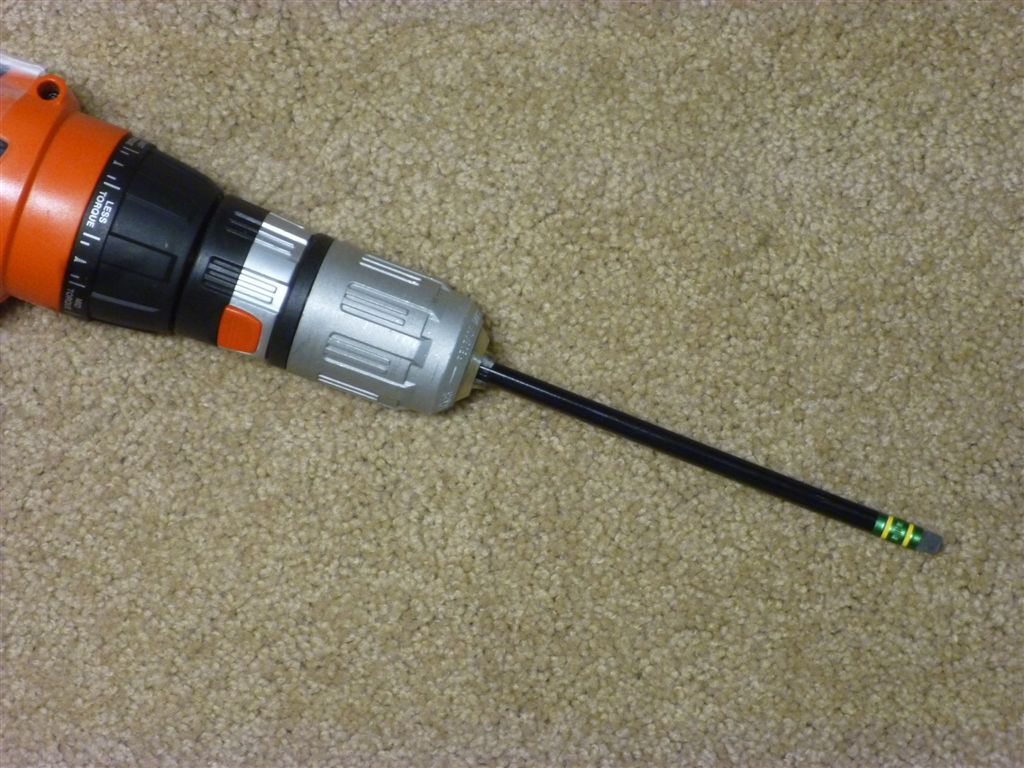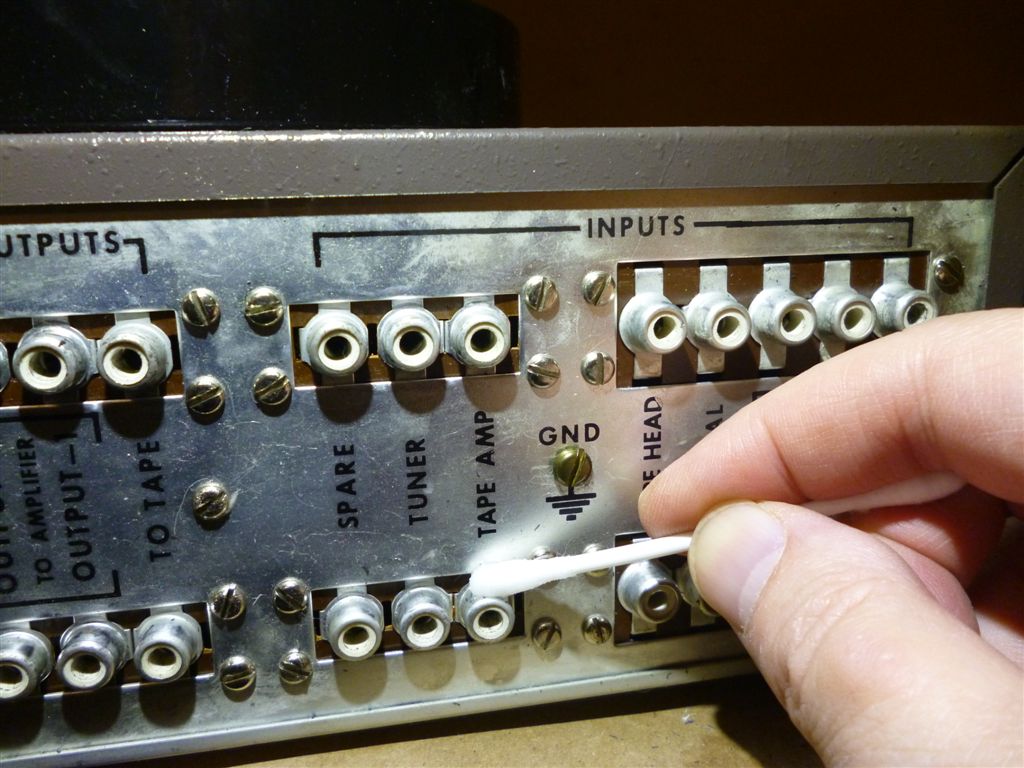
Click here to return to the home page.
Why bother? If your connector hygiene is closer to Oscar Madison than Felix Unger, you're not getting all you can from your music system. As these things go, I tend to be a bit cavalier, but recently, I was measuring distortion and noise on a preamp. The first measurement was good, but when I went to repeat it, it showed many 60 Hz haronics (hum)! After a bit of head scratching, I reseated input and output connectors. The hum was gone! Further experiments and subsequent investigation showed that oxidation on the connector was to blame.
A layer of oxidation often forms on the crown (grounded surface) of the female RCA connectors used for audio and video I/O. This is especially true if you have vintage equipment. That same kind of oxidation also forms on the center conductor of the female connectors, where it's not so visible. When it's on the ground conductor, it increases the resistance of the ground path, which decreases its effectiveness, leading to more noise owing to ground loops. This white paper explains the phenomenon (see Figure 3).
There are a couple of ways to attack the problem. Some people like to start with a clean pencil eraser. If you're an old timer, you might even have the rotary automatic erasers that draftsmen used to use. You can make the equivalent by putting a new clean pencil into a drill chuck with the eraser end out. You can typically find a place to nestle the eraser between the connectors, and slowly run the drill around the outside of the connector until much of the oxidation has been erased.

Some people would opt for more aggressive mechanical means, perhaps an emery cloth. However, if you get too aggressive, you'll remove metal, or perhaps the metal plating that protects the rest of the connector. That's why I like the eraser...it cleans dirt, but shouldn't remove metal.
Some folks use isopropyl alcohol on a cotton swab. Others swear by Caig's DeoxIT. I've used Radio Shack Control/Contact Cleaner and Lubricant. No matter what the chemical, the process is the same. Wet the cotton swab with the cleaner, and wipe down the ground surfaces of the connector. Some would combine emery cloth and the chemical cleaner for particularly dirty connectors.

Chemical cleaning is the only practical way. Dip a pipe cleaner in the chemical cleaner (you may have to double the pipe cleaner to make it fit snugly enough). Insert the dampened pipe cleaner into the RCA jack and swish it around to clean the contact. I guess you might also use cotton swabs, but use care that no cotton fibers remain in the connector.
New RCA connectors are a great alternative to cleaning up the old connectors. Here are a number of options: